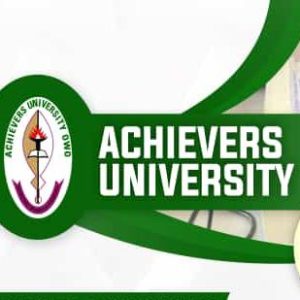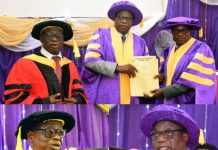
Prof. Abiodun Musa Aibinu, Vice-Chancellor, Summit University, Offa, Kwara state, says if the private universities can rise up to task, some of the major challenges facing the Nigeria universities would be a thing of the past.
Aibinu made this assertion while delivering a lecture on an online Professional platform: “No Dull Moment Islam” on the topic : “Private Universities in Nigeria and the Nigerian Educational system: prospects and problems.”
The new Vice-Chancellor listed many challenges facing Nigeria universities which include population and growing demand, inadequate infrastructure, obsolete teaching and learning materials, poor implementation of the learning curriculum and poor quality elementary and secondary education.
Others, according to him, include examination malpractice and cheating, poor funding and brain drain, cultism, defective leadership selection process and knowing it all attitude.
The professor of Mechatronics Engineering added that absence of mentoring system, zero innovation culture, poor reward system, non availability of innovation ecosystem and annual final year project rituals are part of the challenges facing the educational sector.
He lamented that due to the various listed challenges, no Nigeria University is in top 1000 in the world in the recent university ranking.
“It is only university of Ibadan that was ranked 1231 in the world and 19 in Africa, far behind universities in South Africa, Egypt and Ghana.
“This is not a compliment for a country touted as the giant of Africa with a population of over 200 million people,” he lamented.
According to him, “as at March 30, 2022, only 217 universities exist in Nigeria with 111 private, 49 federal and 57 states.
To revive the decay in the university educational system in Nigeria, one of the youngest Vice-Chancellors in Nigeria submitted that private universities can do it by adequate funding, adequate facilities and equipment and retain the best brains in the system.
Aibinu, who was appointed Vice-Chancellor in March 2022, added that there must also be zero strike action, corruption free system, modern educational system, zero cult activities, no examination malpractice, zero plagiarism and cheating.
The new Vice-Chancellor opined that the future of education in the next 20 years must involve knowledge and learning while educators must be entrepreneurial.
Others include diverse space time, free choice, data interpretation, student ownership, mentoring becoming more important and field experience and personalised learning among others.















